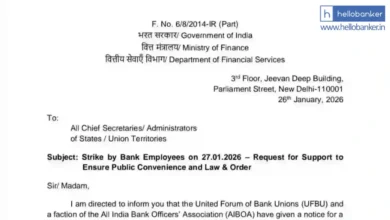Union Bank Casual or Contract Employees protest against Unfair Treatment, Low Salary, No Bonus
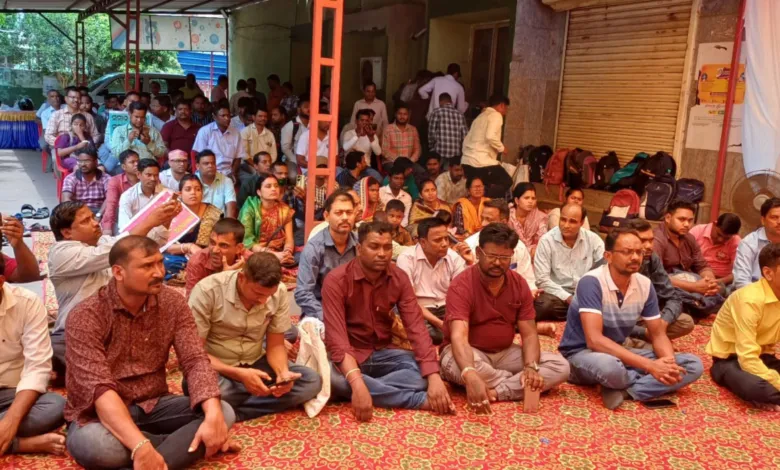
On the occasion of Ambedkar Jayanti, casual workers of Union Bank of India held a nationwide protest, also known as a dharna, to raise their voices against the unfair treatment they have been facing for years. Their main complaints were the non-payment of bonuses and the failure of the bank to make them permanent employees, even though many of them have been working for the bank for several years, performing duties similar to regular staff.
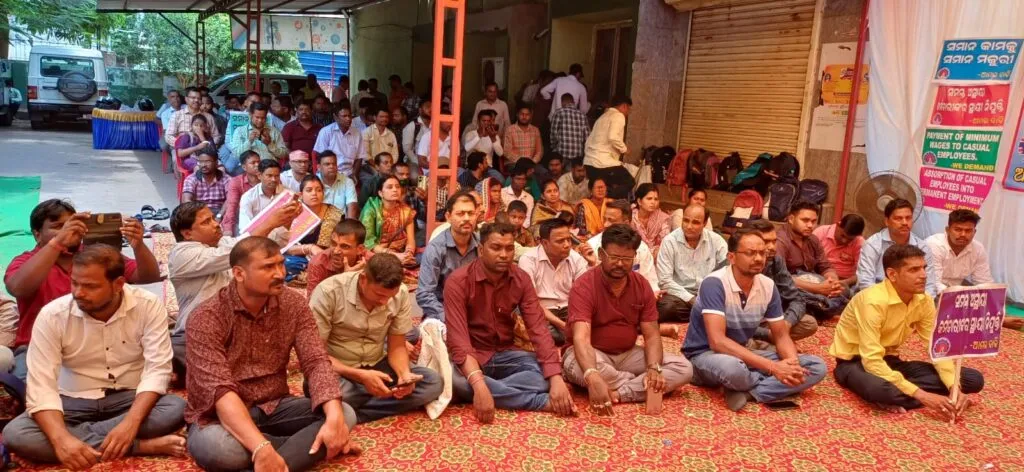
The protest saw participation not only from workers but also from their families in several cities across India. The workers also demanded equal pay for equal work and the payment of minimum wages, which they believe they rightfully deserve.
This protest is part of a long struggle that these workers have been fighting. According to the All India Union Bank Employees Federation (AIUBEF), casual workers have been continuously exploited by the bank. Despite doing regular work, they are treated as temporary staff and are paid less.
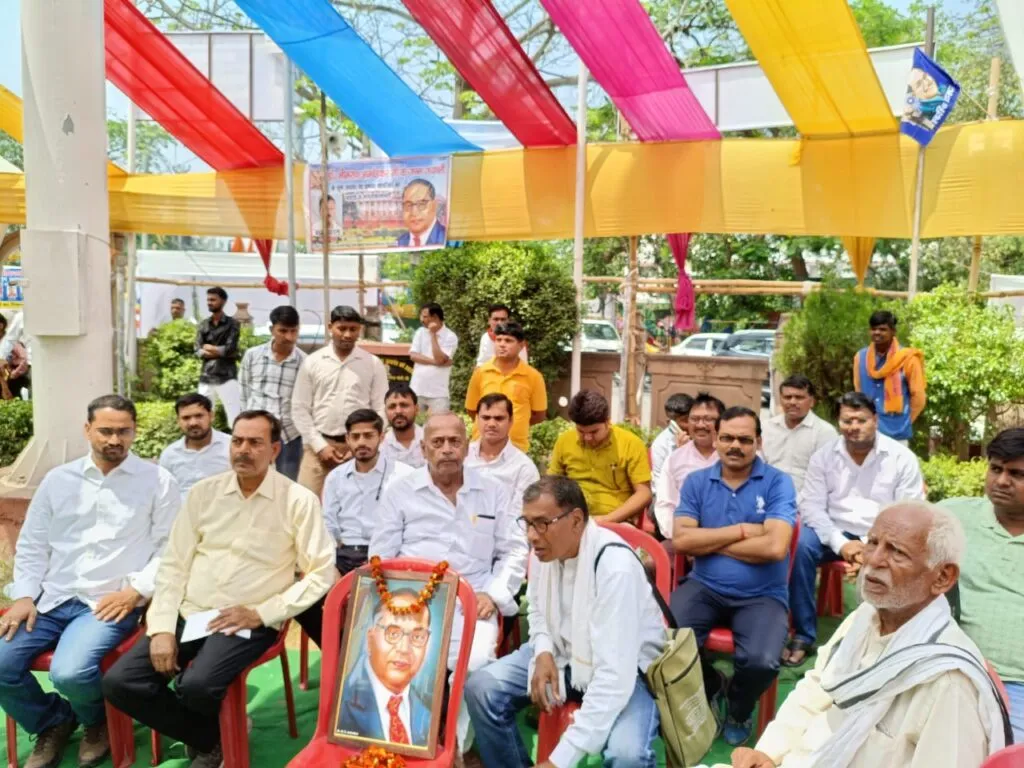
AIUBEF claims that the bank has been using a Supreme Court judgment from the Umadevi case (2006) in the wrong way, to avoid giving these workers permanent positions. Many workers were allegedly made to work under different names so that their employment history could not be tracked, which violates their basic rights and Article 21 of the Indian Constitution that promises the right to live with dignity.
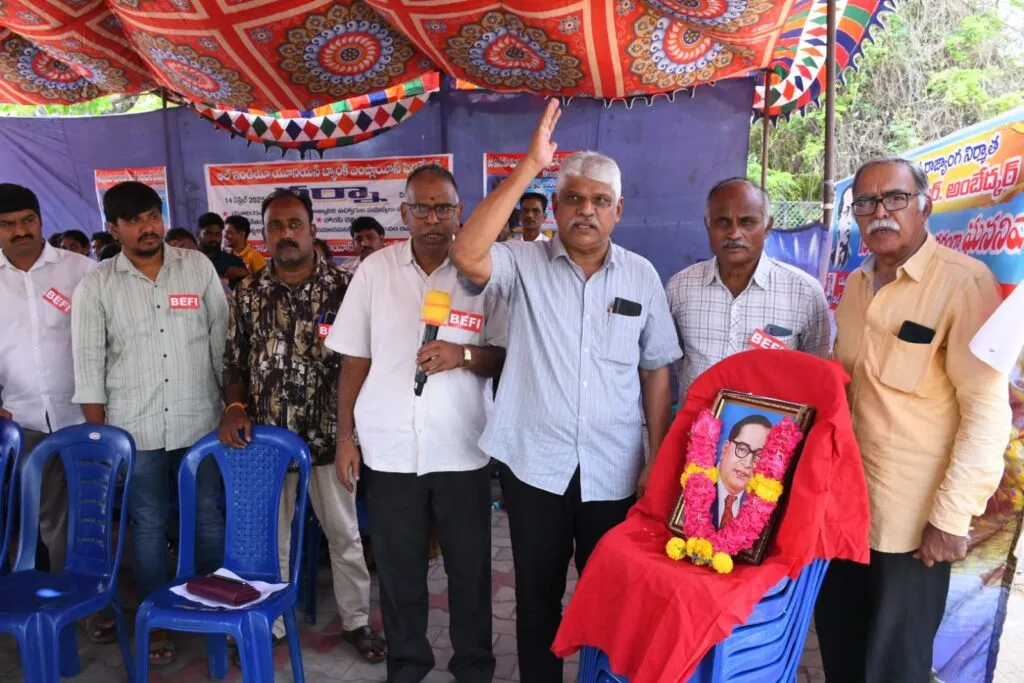
One of the major issues that triggered the protest was the unfulfilled promise of bonus payments. A meeting was held on 11 December 2024, where the Regional Labour Commissioner (RLC) in Kolkata called both the bank’s management and AIUBEF representatives. During this meeting, the MD and CEO of Union Bank, through her team, promised that the bonus would be paid by 31 December 2024, and a report of the payments would be submitted by 31 January 2025.
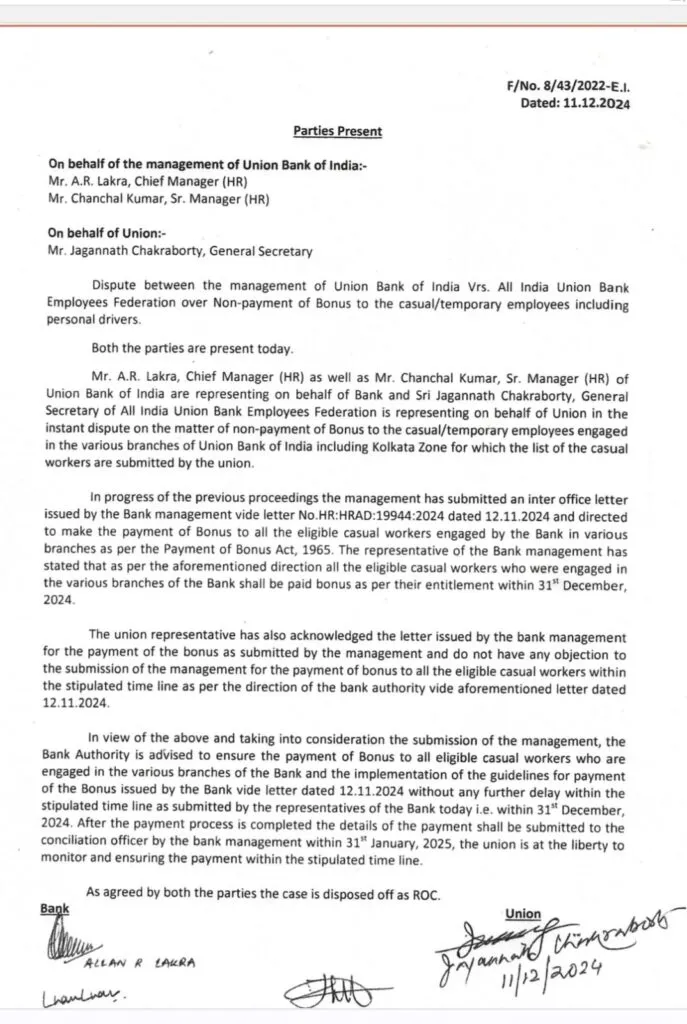
However, AIUBEF says this commitment was not kept. According to General Secretary Jagannatha Chakraborty, the bank is intentionally avoiding bonus payments because doing so would mean officially accepting that these casual workers exist in the system, something the bank has been reluctant to do.
He also criticized the bank for not following the Industrial Disputes Act of 1947 and for going back on its word. He said that only a small number of workers have received the bonus, and now the MD and CEO are even avoiding reporting the status of payments to the Labour Commissioner.

Apart from the bonus issue, the workers are also demanding permanent job status and fair wages. A legal case on equal pay is still pending in the Labour Court in Kolkata. Recruitment issues also remain unresolved. In 2014, the bank conducted a hiring process for subordinate staff. Out of 1,165 vacancies, only 442 were filled by casual workers.
Despite having experience, the remaining workers were not selected. AIUBEF says recruitment was not done fairly in some areas, such as parts of Uttar Pradesh and Punjab, due to corruption. Since then, there has been no fresh hiring in this category.
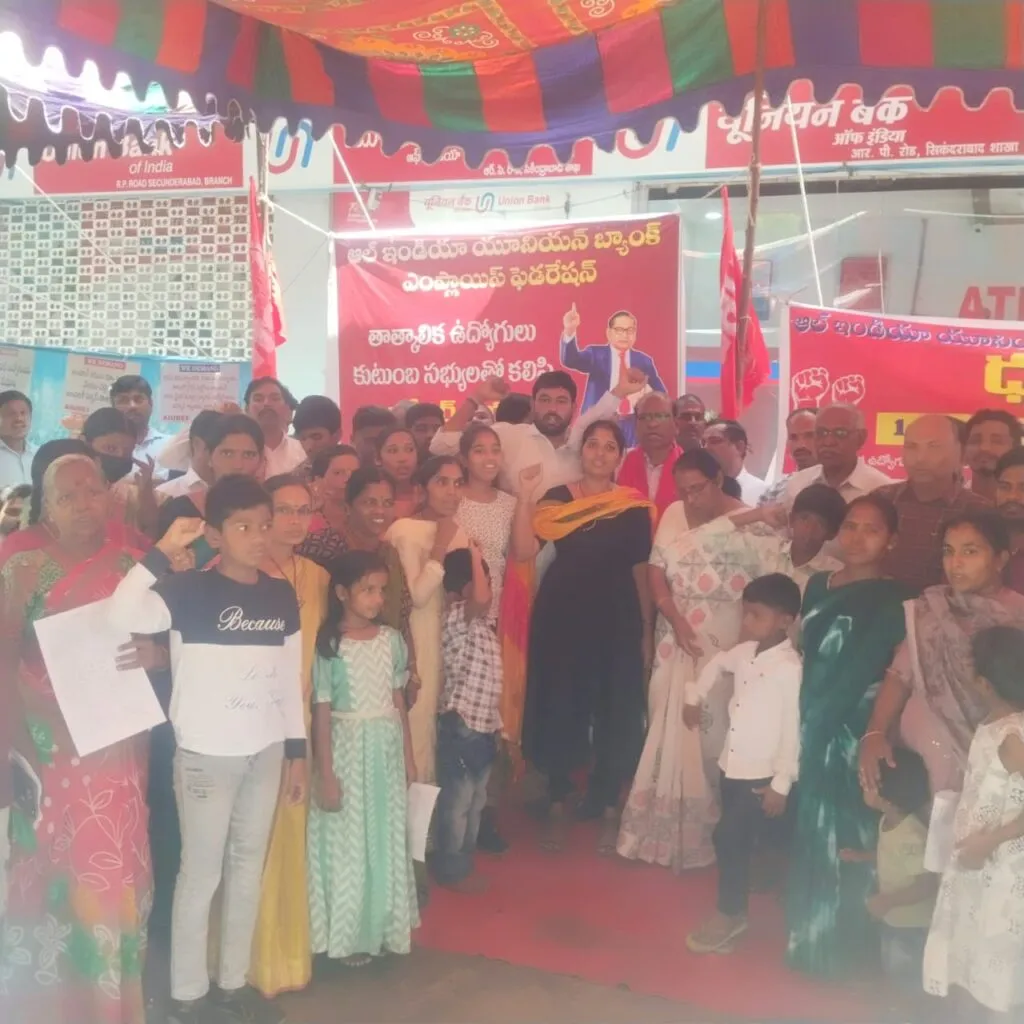
To uncover the truth, AIUBEF used the Right to Information (RTI) Act and found that government records did not match the ground reality. While the Finance Ministry told Parliament that only 74 subordinate posts were vacant as of 1 December 2021, internal bank records showed that over 4,000 branches were functioning without a housekeeper-cum-peon. AIUBEF informed the Finance Minister in a letter dated 3 October 2022, but there has been no response so far.
Due to this continued neglect, AIUBEF has urged the Department of Financial Services (DFS) and the central government to step in. They believe that giving complete freedom to bank management without any accountability has led to the current situation. Without government intervention, the exploitation of casual workers may continue unchecked.
The nationwide dharna reflects the ongoing fight of casual employees for respect, fair pay, and job security. Despite several protests, meetings, and legal efforts, their key demands remain ignored. Their struggle continues as they seek justice and recognition for the work they do.
